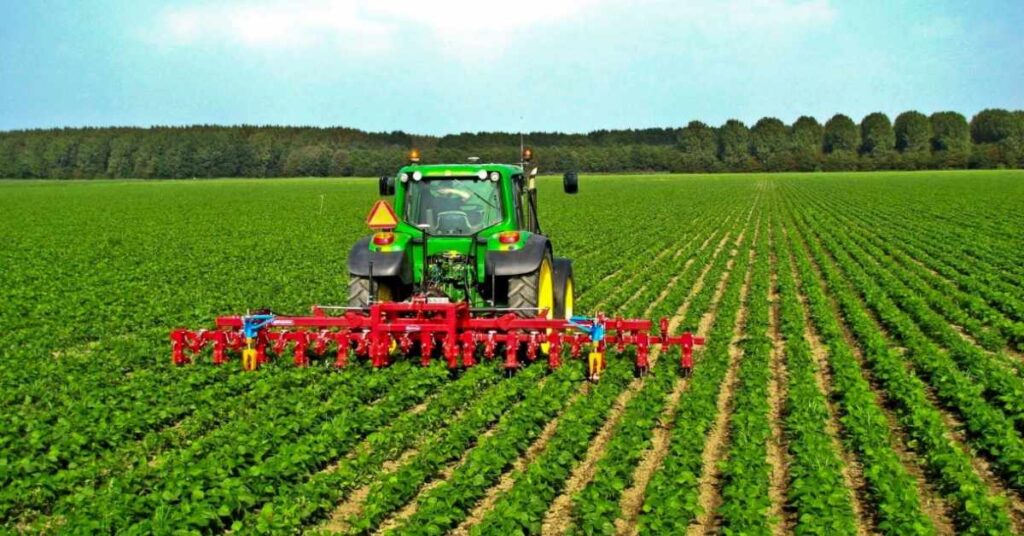Entering the field of agriculture today requires a keen sense of business, an understanding of modern technologies, and a deep commitment to sustainable practices. Thriving in this age-old industry now hinges on adapting to rapid changes in markets, technology, and climate. Whether you’re a budding farmer, an agribusiness entrepreneur, or a stakeholder in the vast agricultural supply chain, you must be well-versed in the complexities facing the sector. Below, we delve into the essentials of what it takes to not only survive but thrive in the modern agricultural landscape.
Understanding the Agricultural Industry: Key Challenges and Opportunities

For many entering the agricultural industry, the initial draw is often a connection to the land and a passion for cultivation. However, beyond the bucolic imagery, farming is fraught with challenges such as market volatility, climate change, and labor shortages. To be successful, one must navigate these issues while seizing opportunities such as farm-to-table movements and direct marketing strategies.
Economic pressures can prompt diversification in crop and livestock systems, adding complexity but also resilience to a farm’s business model. Understanding trade markets and consumer trends is essential for positioning one’s products favorably. For small to medium-sized operations in particular, carving a niche in local markets or with specialty products might offer a competitive edge.
One critical opportunity lies in sustainability practices. Demand for organic and sustainably grown products continues to rise. Investing in sustainable agriculture can open up new markets and may also lead to cost savings through efficient resource utilization. It’s a pathway where ecology and economy increasingly intersect.
Navigating Agricultural Policies and Regulations: Staying Compliant and Competitive
Compliance with local, national, and international policies is a significant aspect of modern agricultural production. Farmers and agricultural business holders must understand legislation relating to food safety, worker protection, environmental regulations, and animal welfare among others. These regulations are not static, thus keeping abreast of changes is mandatory.
Trade agreements and subsidies can have profound impacts on the profitability of agricultural enterprises. Engagement with industry associations can provide invaluable insights into policy shifts and advocacy opportunities. Networking can be a powerful tool in influencing policy development and obtaining support when amendments or new legislation are introduced.
On the provincial scale, entities like a fuel supplier in Saskatchewan are subject to specific regulations that impact their operations and service to the agricultural community. This, in turn, affects local farmers and agribusinesses who depend on these suppliers, illustrating the interconnectedness of regulations and the industry.
Essential Skills for Success in Modern Farming and Agribusiness
The modern farmer is no longer just a cultivator of crops and livestock but also a savvy business professional. As such, financial literacy is a non-negotiable skill, enabling the management of budgets, understanding investment returns, and navigation of the often complex tax and subsidy landscape of the agricultural sector.
Technological proficiency is rapidly becoming a core skill in agriculture, with advancements in precision farming, data analysis, and automation shaping the future of the industry. The integration of smart technologies on the farm can lead to significant improvements in productivity and cost management.
Agricultural entrepreneurs must grasp the art of marketing and customer relations. The ability to build a brand, attract customers, and retain loyalty through quality products and engagement requires finely tuned communication and marketing skills. This also includes leveraging digital platforms to connect with broader markets.
Embracing Technology and Innovation in Agriculture for Improved Productivity

Embracing cutting-edge technology is instrumental in pushing the boundaries of agricultural productivity and efficiency. Today, drones, satellite imaging, and GPS technologies are enabling precision agriculture, allowing farmers to maximize yields while minimizing inputs and environmental impacts.
Innovation isn’t confined to the fields; it also spreads into the supply chain with advanced logistics solutions and inventory management systems. This simplifies the distribution of goods while ensuring traceability, a key concern in today’s food systems. Producers and suppliers who harness these technologies gain a distinct advantage in the market.
The rise of biotechnology and AI poses both an opportunity and a challenge within agriculture. Engaging in the latest research and developing practical applications for these technologies can lead to breakthroughs in crop resistance, animal breeding, and farm management approaches.
When looking for support in this technological venture, partnering with a reliable outdoor power equipment provider and other key tech suppliers can significantly ease the transition toward modernized operations. These partnerships ensure that agribusinesses have access to the latest tools and machinery as well as to expert advice and service.
Overall, carving out a successful niche in modern agriculture requires a blend of traditional knowledge, business acumen, and willingness to embrace innovation. By understanding and adapting to the challenges, harnessing technological advancements, and maintaining a dedication to sustainability, agricultural entrepreneurs can cultivate thriving businesses for generations to come.
